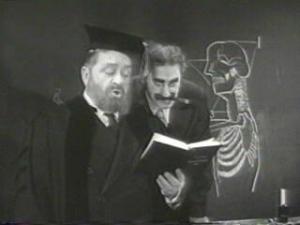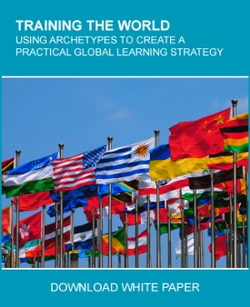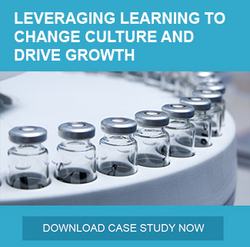by Reni Gorman

I have been doing training for 20+ years now and the audience that gives me the most pain in terms of designing instruction is an audience of experts. Why? Well because experts “know everything”--even if they don’t. That means they are often trying to align new knowledge into categories they already understand. The response to the content you’re teaching is often “Oh, yeah, that is just like…” and they bring up things that they can relate to in their own expert fields. Instructional designers are often encouraged to teach people with examples that learners can relate to—but is this true with experts as well? If experts try to relate everything (or most things) to other things they know, what happens if they get it wrong? Then their brains have just encoded information in an incorrect way—which is not easy to change. It also makes me wonder, maybe this is true for all of us, not just experts. It is just that experts are vocal about it. We know as learning designers that misperceptions have to be uncovered and dealt with upfront before learning can happen in the “right way.” So what can we do?
Well, dual process reasoning theory indicates that two systems collide when it comes to reasoning of any kind. (Holyoak & Morrison, 2005) System 1 is our evolutionary system reflecting a collection of innate modules. Think of this as our instincts; they are so fast and automatic that they do not even register in our consciousness until after the reaction. Kind of like when people jump to very quick conclusions about what they know.
System 2 is our intellect, our cognition; it is slow as we think things over and reason about the problem at hand. When we get brand new information that we can’t relate to anything we already know, we actually have to think it through as we learn it; that when we use System 2. After we think it through we may well find something we can relate the new information to—but the point is, we have thought it through instead of jumping to conclusions.
Can we create conditions to which System 1 cannot react? Can we set learners up to have to reason and think things through? Maybe we should try. How? Perhaps by giving learners a problem with which they are not familiar with at all. Try it and let me know how you make out!
Resources:
Holyoak, K.J. & Morrison, R.G. (2005). The Cambridge Handbook of Thinking and Reasoning. New York: Cambridge University Press.

I have been doing training for 20+ years now and the audience that gives me the most pain in terms of designing instruction is an audience of experts. Why? Well because experts “know everything”--even if they don’t. That means they are often trying to align new knowledge into categories they already understand. The response to the content you’re teaching is often “Oh, yeah, that is just like…” and they bring up things that they can relate to in their own expert fields. Instructional designers are often encouraged to teach people with examples that learners can relate to—but is this true with experts as well? If experts try to relate everything (or most things) to other things they know, what happens if they get it wrong? Then their brains have just encoded information in an incorrect way—which is not easy to change. It also makes me wonder, maybe this is true for all of us, not just experts. It is just that experts are vocal about it. We know as learning designers that misperceptions have to be uncovered and dealt with upfront before learning can happen in the “right way.” So what can we do?
Well, dual process reasoning theory indicates that two systems collide when it comes to reasoning of any kind. (Holyoak & Morrison, 2005) System 1 is our evolutionary system reflecting a collection of innate modules. Think of this as our instincts; they are so fast and automatic that they do not even register in our consciousness until after the reaction. Kind of like when people jump to very quick conclusions about what they know.
System 2 is our intellect, our cognition; it is slow as we think things over and reason about the problem at hand. When we get brand new information that we can’t relate to anything we already know, we actually have to think it through as we learn it; that when we use System 2. After we think it through we may well find something we can relate the new information to—but the point is, we have thought it through instead of jumping to conclusions.
Can we create conditions to which System 1 cannot react? Can we set learners up to have to reason and think things through? Maybe we should try. How? Perhaps by giving learners a problem with which they are not familiar with at all. Try it and let me know how you make out!
Resources:
Holyoak, K.J. & Morrison, R.G. (2005). The Cambridge Handbook of Thinking and Reasoning. New York: Cambridge University Press.


